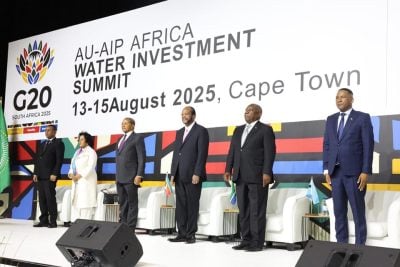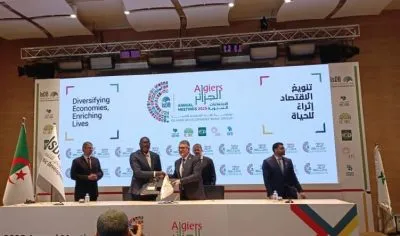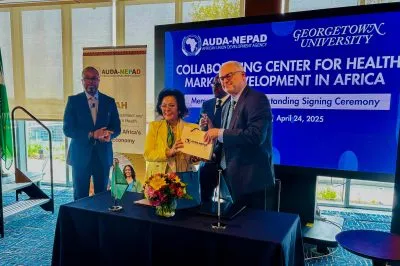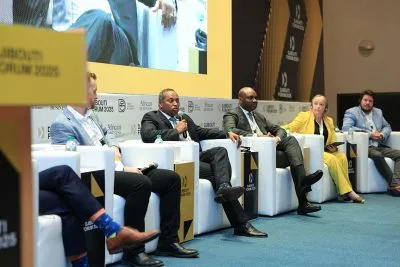This article was produced with the support of Brand South Africa
Trade and industrialisation are increasingly the focus in Africa, as policymakers seek more effective and sustainable panaceas to the continent’s developmental challenges. On the sidelines of the 2024 World Economic Forum a breakfast discussion on how Africa can change its growth trajectory in a challenging global environment brought together Enoch Godongwana, minister of finance of South Africa; Ebrahim Patel, minister of trade, industry, and competition of South Africa; Wamkele Mene, secretary-general at the African Continental Free Trade Area (AfCFTA) Secretariat with Christine Cook, global chief revenue officer of Bloomberg Media.
Patel noted the challenges posed by a more fractious and volatile world, the impacts of the Covid-19 experience and the war in Ukraine – which, he said, had brought into sharp focus “the enormous expense that we all incur when you have supply chain disruptions”. Recalling that while Africa accounts currently for 17% of the world’s population and only 3% of global GDP, Patel stressed the need for a new approach. “We need a new grand bargain as Africans that will unlock the opportunity for industrialisation,” he added.
With Africa set to soon overtake China and India in population, Patel said there is the need for a change in the relationship between Africa and the rest of the world and a focus on technology that will facilitate leapfrogging – similar to what had occurred in the telecommunications space at the start of this century. The AfCFTA, he said, can unite the continent’s separate entities and give it greater bargaining power as it seeks to “leverage mineral resources to fuel a drive for industrialisation”. He said that South Africa, rising to the challenge of Covid, is now able to produce vaccines and human insulin and has a well-developed and significant vehicle manufacturing capacity.
The need for self-sufficiency
Recalling the inception of the AfCFTA, Mene noted that the environment of crisis within which it was born has only intensified, with significant, adverse impacts on the continent. Africa’s exports to the European Union, for example, reduced by over 40% in the wake of the crises, which brought to the fore the need for concrete steps toward self-sufficiency and the establishment of continental supply chains to address current and future crises. He pointed to the AfCFTA as a crucial response, with a focus on sectors such as pharmaceuticals and agriculture. Africa imports $50bn worth of food annually, despite having significant production capacity.
Godongwana emphasised the significance of addressing climate change and the need for investments in energy and trade facilitation infrastructure, to ensure the success of the AfCTFA. In South Africa, he said, there were massive structural reforms in the energy sector, logistics and skills to reposition the country for growth and competitiveness.

 Sign in with Google
Sign in with Google 





